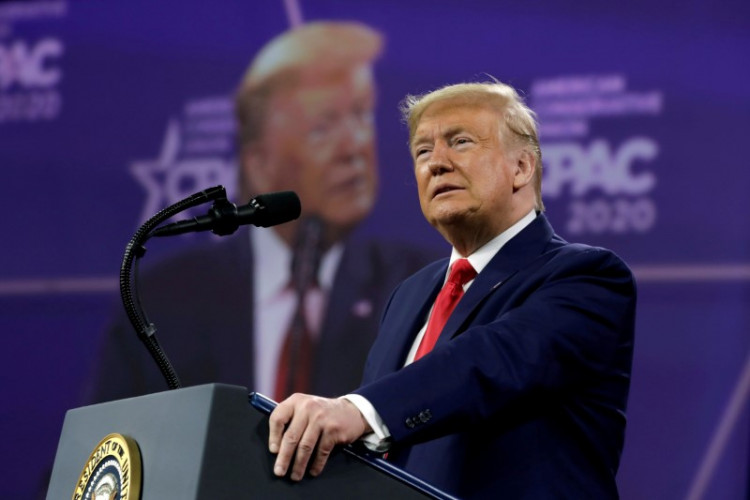President Donald Trump announced Monday that 25% tariffs on imports from Mexico and Canada would take effect Tuesday, dismissing the possibility of further negotiations with the two neighboring nations. The move, framed as an effort to curb fentanyl trafficking and reduce trade imbalances, sent markets tumbling, with the S&P 500 closing down nearly 2%.
"Tomorrow-tariffs 25% on Canada and 25% on Mexico. And that'll start," Trump told reporters in the Roosevelt Room. "They're going to have to have a tariff."
The announcement signaled the end of a one-month reprieve granted in February, during which Mexico and Canada had pledged actions to address U.S. concerns. However, Trump declared that there was "no room left for Mexico or for Canada" to negotiate further exemptions.
Financial markets reacted sharply, with the Dow Jones Industrial Average falling nearly 650 points after Trump's remarks. The S&P 500's 1.76% decline marked its worst trading session since December. Companies such as Ford and Walmart have warned that tariffs could drive up costs and disrupt supply chains, while analysts from the Peterson Institute for International Economics and Yale University Budget Lab estimate that American households could see price hikes exceeding $1,000.
Canada and Mexico swiftly condemned the decision and outlined their retaliatory measures. Canadian Prime Minister Justin Trudeau argued that the tariffs were unjustified and warned of economic repercussions. "Because of the tariffs imposed by the U.S., Americans will pay more for groceries, gas, and cars, and potentially lose thousands of jobs," Trudeau said. He confirmed that Canada would impose 25% tariffs on $155 billion worth of American goods, with the first $30 billion set to be taxed after midnight Tuesday.
Mexican President Claudia Sheinbaum refrained from immediate retaliation but hinted at potential countermeasures. "It's a decision that depends on the United States government, on the United States president," she said. "So whatever his decision is, we will make our decisions and there is a plan, there is unity in Mexico."
The tariffs add to Trump's broader trade offensive. In addition to the levies on North American imports, he confirmed that duties on Chinese goods, which stood at 10%, would double to 20% on Tuesday. Treasury Secretary Scott Bessent defended the administration's stance, insisting that China, rather than U.S. consumers, would bear the financial burden. Speaking on CBS News, Bessent dismissed concerns that U.S. consumers would bear the costs, asserting that China would "eat" the expense rather than pass it along in the form of higher prices.
Trump has maintained that his tariffs are necessary to pressure foreign manufacturers to relocate production to the United States. Speaking Monday, he pointed to Taiwan Semiconductor Manufacturing Co.'s (TSMC) recent investment in U.S. chip fabrication plants as evidence that companies were responding. "What they have to do is build their car plants, frankly, and other things in the United States, in which case they have no tariffs," Trump said.
Critics argue that the tariffs will only serve to heighten inflation and alienate key U.S. allies. Senate Democratic Leader Chuck Schumer accused Trump of worsening the very economic pressures that voters were most concerned about. "Voters in last year's election were primarily upset by inflation, and now Donald Trump is making it worse," Schumer said. Senator Amy Klobuchar of Minnesota warned of rising costs for American farmers, calling the policy a "crazy way to handle our allies."
The latest trade escalation follows Trump's decision in February to impose 25% duties on U.S. imports of steel and aluminum, as well as his plan to roll out "reciprocal tariffs" in April. Under this policy, the U.S. will match the tariffs and subsidies imposed by foreign nations on American goods.
Despite opposition from businesses and political leaders, the Trump administration remains steadfast in its approach. Commerce Secretary Howard Lutnick had suggested earlier in the day that the tariff decision was still fluid, but Trump's statement left little doubt. "There are going to be tariffs on Tuesday on Mexico and Canada. Exactly what they are, we're going to leave that for the president and his team to negotiate," Lutnick said Sunday.






